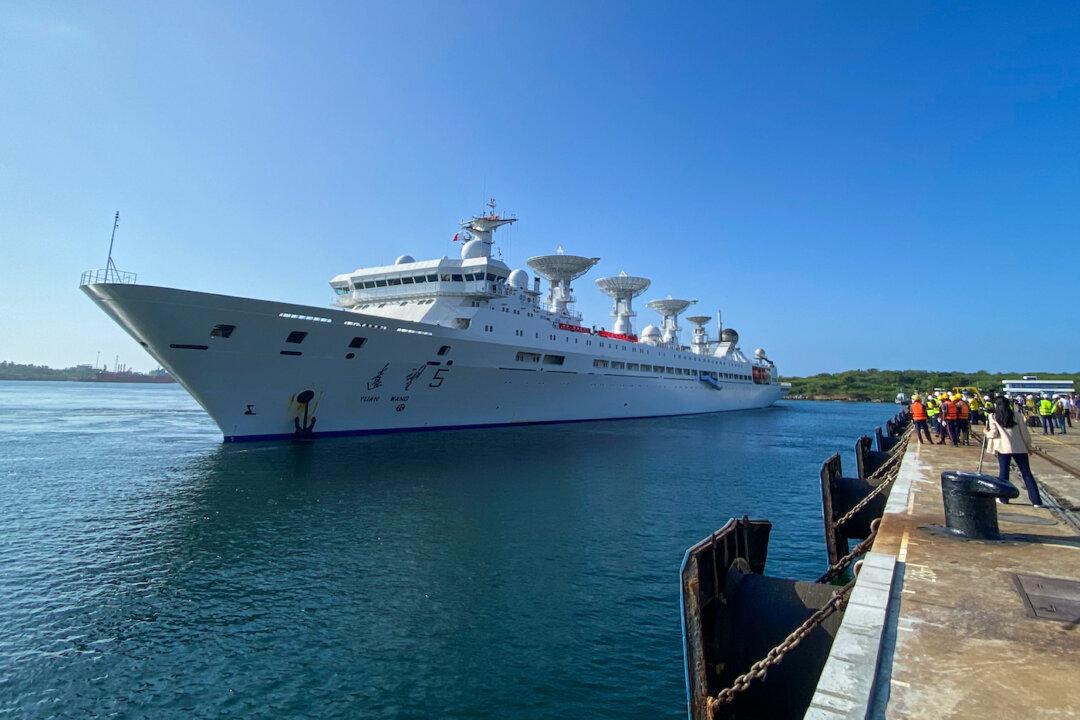An official from the Chinese Communist Party’s (CCP’s) foreign ministry on Tuesday confirmed that the regime’s satellite-tracking vessel has docked at Sri Lanka’s port for replenishment, following a delay after India objected to the ship’s arrival, citing security concerns.
The research vessel, Yuan Wang 5, arrived at the Hambantota port on Tuesday morning and will remain there for seven days. Sri Lanka’s Foreign Ministry said the ship was approved after “extensive consultations at a high level.”





